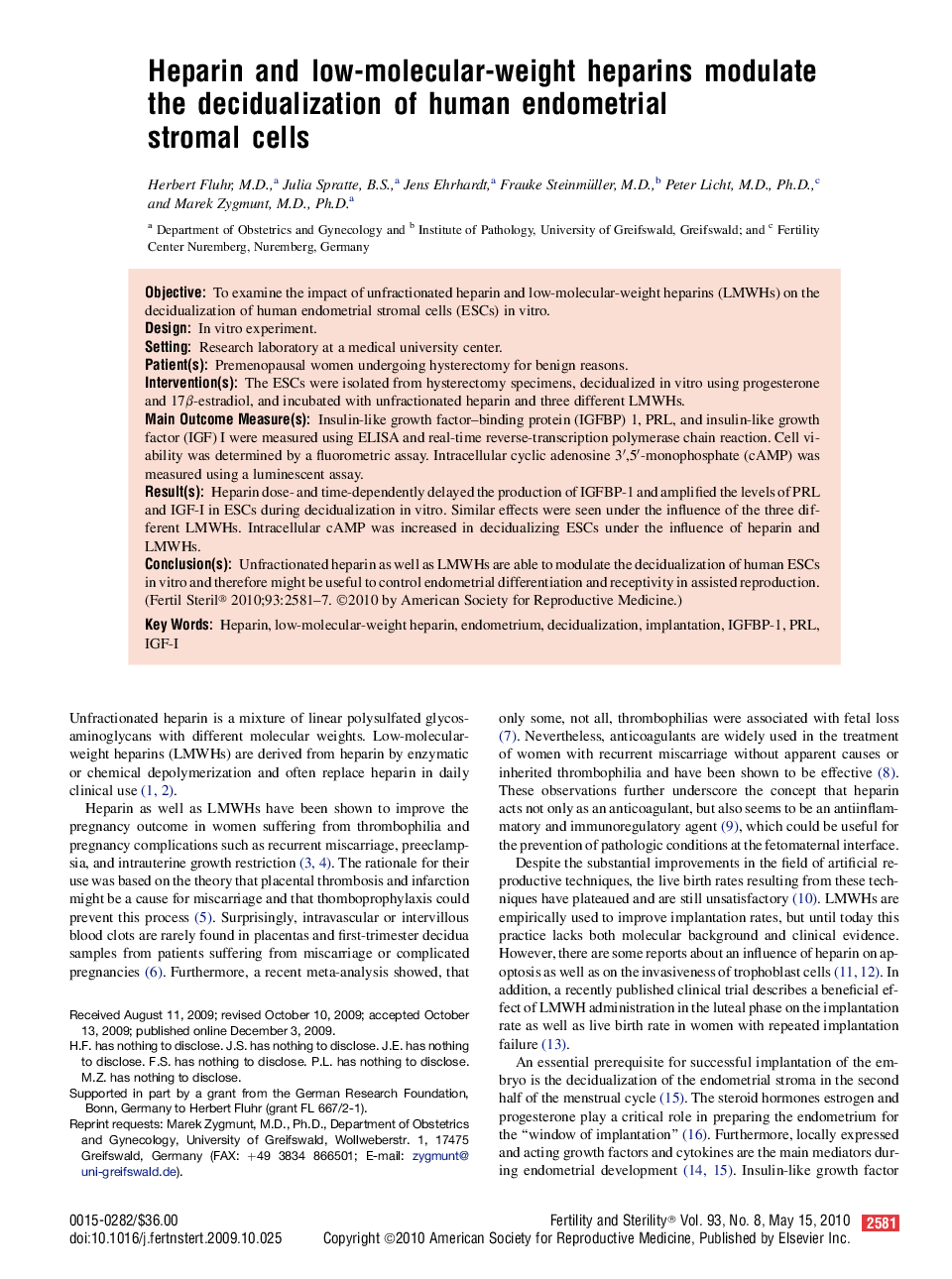| Article ID | Journal | Published Year | Pages | File Type |
|---|---|---|---|---|
| 3939673 | Fertility and Sterility | 2010 | 7 Pages |
ObjectiveTo examine the impact of unfractionated heparin and low-molecular-weight heparins (LMWHs) on the decidualization of human endometrial stromal cells (ESCs) in vitro.DesignIn vitro experiment.SettingResearch laboratory at a medical university center.Patient(s)Premenopausal women undergoing hysterectomy for benign reasons.Intervention(s)The ESCs were isolated from hysterectomy specimens, decidualized in vitro using progesterone and 17β-estradiol, and incubated with unfractionated heparin and three different LMWHs.Main Outcome Measure(s)Insulin-like growth factor–binding protein (IGFBP) 1, PRL, and insulin-like growth factor (IGF) I were measured using ELISA and real-time reverse-transcription polymerase chain reaction. Cell viability was determined by a fluorometric assay. Intracellular cyclic adenosine 3′,5′-monophosphate (cAMP) was measured using a luminescent assay.Result(s)Heparin dose- and time-dependently delayed the production of IGFBP-1 and amplified the levels of PRL and IGF-I in ESCs during decidualization in vitro. Similar effects were seen under the influence of the three different LMWHs. Intracellular cAMP was increased in decidualizing ESCs under the influence of heparin and LMWHs.Conclusion(s)Unfractionated heparin as well as LMWHs are able to modulate the decidualization of human ESCs in vitro and therefore might be useful to control endometrial differentiation and receptivity in assisted reproduction.
